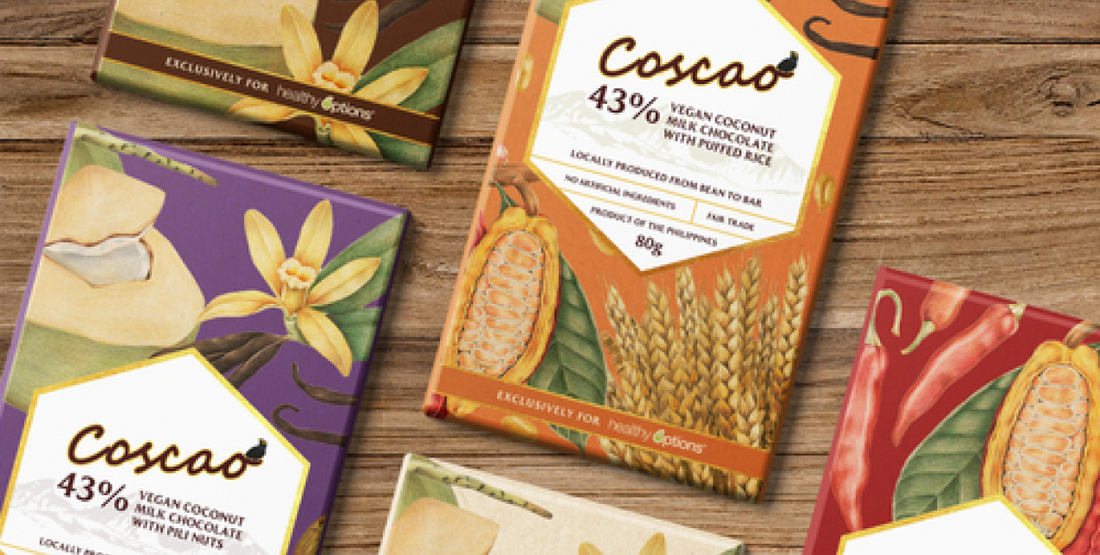When it comes to high-quality chocolates, European countries like Switzerland, Belgium, and France are well-known throughout the world. But Philippine chocolate is making its mark on the global stage: Local brands snagged plum awards at the prestigious international Academy of Chocolate Awards 2019. Philippine chocolate was awarded gold, silver, and bronze in numerous categories at the competition, which had over 1,000 entries from 50 participating countries.
Chocolate in the Philippines
Historian Ambeth Ocampo writes that cacao came to the Philippines from Mexico by way of the Manila-Acapulco Galleon Trade, which ran from 1500s to the 1800s. Jesuits were also said to have imported cacao in the 1600s. According to Ocampo, it was enjoyed not just by the Spaniards and upper classes but also by ordinary people. Indeed, chocolate has always been loved by all.
Filipinos traditionally take cacao and mix it with sugar to turn into balls or tablets, a.k.a. tablea, which are then dissolved in water or milk. A batirol is used to froth it up and turn it into our own version of hot chocolate. (Tsokolate eh is said to be the thicker, richer version, while tsokolate ah is a watered-down version. It was said that in the past, you could tell how welcome you were in someone’s home by the consistency of the chocolate you were served!) We also mix it with a beloved local staple—rice—to make that breakfast of champions, champorado.
While big local companies have been producing cheap chocolate for decades, smaller players are recognizing the huge potential for high-quality chocolates. Global demand for the sweet stuff is growing yearly and our local climate is ideal for producing cacao, which is an equatorial plant.
Local Chocolates to Try
Mindanao produces most of the country’s chocolate so it’s no surprise that many homegrown brands have sprung up in the south. One brand of Mindanao chocolates is Coscao. Not only does it produce premium chocolate but it also does so ethically and sustainably: The cacao beans are sourced from a farmers’ cooperative at the foothills of Mt. Apo, where the farmers make use of sound ecological methods as well as good handling practices from fermentation to drying to storage. The cacao beans are mixed with coconut sap sugar and virgin coconut oil, both sourced from international certified organic operators working with smallholder grower groups.
Coscao’s hand-crafted chocolates go through a bean-to-bar process of roasting, winnowing, grinding, conching, tempering, molding, and packaging. The chocolates are almost purely handmade, with the tools only come into play during the refining process; natural granite stone is used on the beans to achieve the best taste and texture.
Coscao chocolates come in a variety of unique flavors:
Eco 43% Vegan Coconut Milk Chocolate Bar. This bar has a medium to light brown color, and has a strong coconut aroma and an earthy, creamy flavor. The coconut milk gives it that dairy taste without the dairy milk powder, making this heaven-sent for vegans.

Eco 43% Vegan Coconut Milk Chocolate Bar with Pili. This medium to light brown bar is also made with coconut milk and is infused with pili nut.

The best part? You can snack on these local chocolates without the guilt, as long as you stick to dark chocolate in small doses. Research suggests that cacao has a number of health benefits: It’s packed with magnesium, iron, potassium, calcium, zinc, copper, and manganese; it contains free radical-fighting antioxidants; and it may help prevent heart disease. Unsurprisingly, according to a review published in the British Journal of Clinical Pharmacology cocoa powder and chocolate may even induce positive effects on mood. But then, we didn’t need science to tell us that chocolate can make us happy!
sources:
http://fnbreport.ph/
https://www.sunstar.com.ph
https://opinion.inquirer.net
Disclaimer: The information provided is for educational purposes only and does not constitute medical advice. Always seek the advice of your physician or qualified healthcare provider with any questions or concerns about your health. Check with your doctor before beginning any nutrition or exercise program. Never disregard or delay seeking medical advice because of something you have heard or read in this article or the internet.





